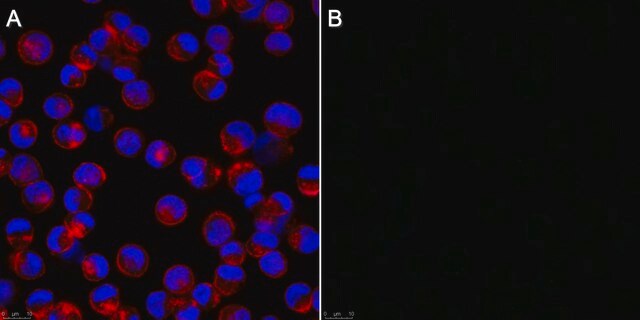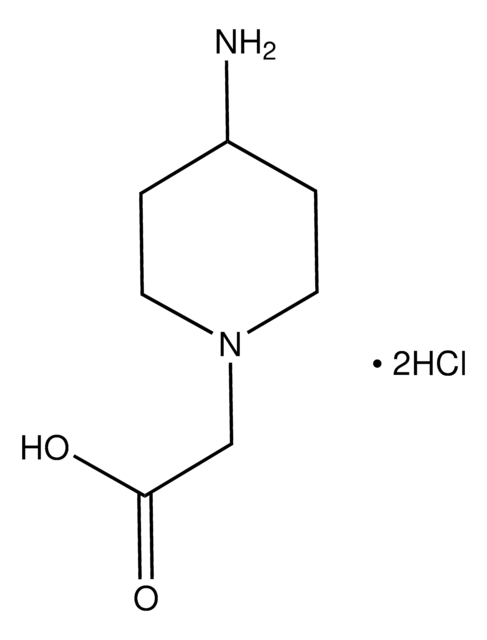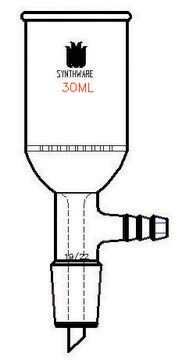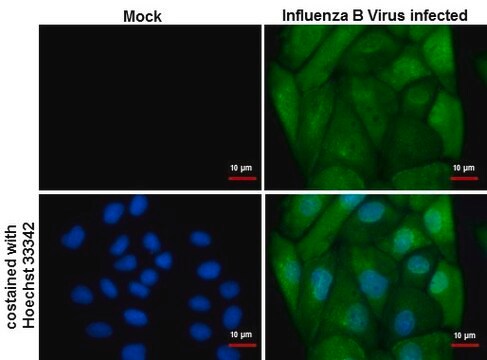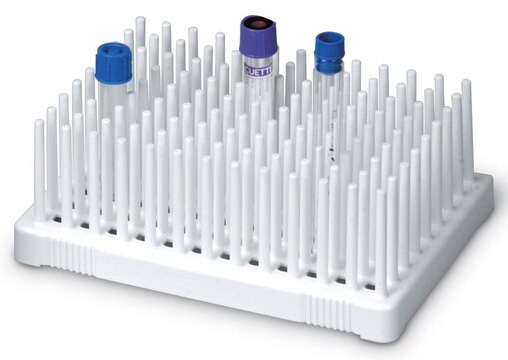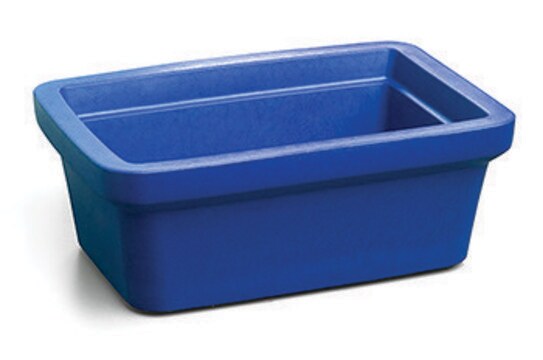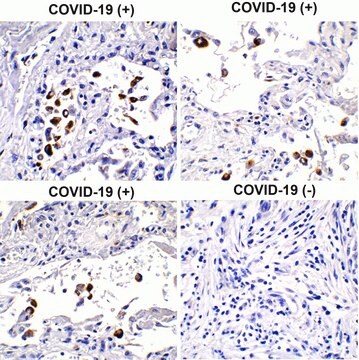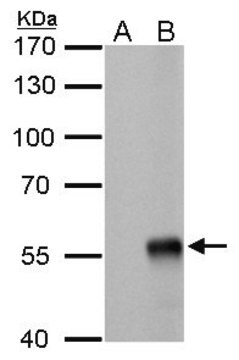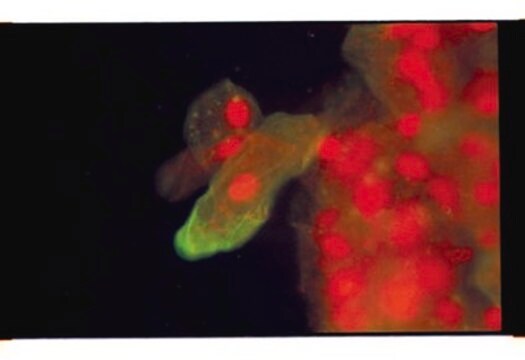일반 설명
We are committed to bringing you greener alternative products, which adhere to one or more of The 12 Principles of Green Chemistry.This antibody is Preservative-free, produced without the harm or sacrifice of animals and exceptionally stable to allow for ambient shipping and storage if needed and thus aligns with "Waste Prevention", "Designing Safer Chemicals" and "Design for Energy Efficiency".
Click here for more information.
ZooMAb antibodies represent an entirely new generation of recombinant monoclonal antibodies.
Each ZooMAb antibody is manufactured using our proprietary recombinant expression system, purified to homogeneity, and precisely dispensed to produce robust and highly reproducible lot-to-lot consistency. Only top-performing clones are released for use by researchers. Each antibody is validated for high specificity and affinity across multiple applications, including its most commonly used application. ZooMAb antibodies are reliably available and ready to ship when you need them.
특이성
Clone A3 is a ZooMAb® mouse recombinant monoclonal antibody that specifically detects Influenza A virus nucleoprotein.
면역원
Influenza A virus H1N1.
애플리케이션
Quality Control Testing
Evaluated by Western Blotting with recombinant nucleoprotein from Influenza A virus H1N1.
Western Blotting Analysis: A 1:1,000 dilution of this antibody detected recombinant nucleoprotein from Influenza A virus H1N1.
Tested Applications
Immunocytochemistry Analysis: A 1:100 dilution from a representative lot detected Influenza A Nucleoprotein in MDCK cells infected with Influenza A virus.
ELISA Analysis: 1.0 μg/mL from a representative lot detected recombinant nucleoprotein from Influenza A virus.
Note: Actual optimal working dilutions must be determined by end user as specimens, and experimental conditions may vary with the end user.
Anti-Influenza A Nucleoprotein, clone A3 ZooMAb®, Cat. No. ZMS1021, is a recombinant Mouse monoclonal antibody that detects Influenza A virus nucleoprotein and is tested for use in ELISA and Immunocytochemistry, and Western Blotting.
표적 설명
Bestrophin-1 (UniProt: O76090; also known as TU15B, Vitelliform macular dystrophy protein 2) is encoded by the BEST1 (also known as VMD2) gene (Gene ID: 7439) in human. Bestrophin-1 is a multi-pass, homopentameric membrane protein that contains three cytoplasmic domains, three extracellular domains, and four transmembrane domains. It is predominantly expressed in the basolateral membrane of the retinal pigment epithelium. However, its expression has also been reported in cortical and hippocampal astrocytes and in cerebellar Bergmann glia and lamellar astrocytes. It serves as a calcium-activated anion channel and its calcium-binding clasp consists of the acidic cluster of amino acids Glu300, Asp301, Asp302, Asp303, and Asp4304). Under physiological conditions, Bestrophin-1 is also involved in glutamate and GABA release from astrocytes to modulate neuronal excitability, synaptic transmission, and synaptic plasticity. Mutations in BEST1 gene have been linked to various macular dystrophies and retinitis pigmentosa that is characterized by retinal pigment deposits and primary loss of photoreceptor cells followed by secondary loss of cone photoreceptors. This ZooMAb® recombinant monoclonal antibody, generated by our propriety technology, offers significantly enhanced specificity, affinity, reproducibility, and stability over conventional monoclonals. (Ref.: Oh, S-J., et al. (2017). Exp. Neurobiol. 26(3); 113-121).
물리적 형태
Purified recombinant mouse monoclonal antibody IgG, lyophilized in PBS, 5% Trehalose, normal appearance a coarse or translucent resin. Contains no biocide or preservatives, such as azide, or any animal by-products. Larger pack sizes provided as multiples of 25 μL.
재구성
300 μg/mL after reconstitution at 25 μL per vial. Please refer to guidance on suggested starting dilutions and/or titers per application and sample type.
저장 및 안정성
Recommend storage of lyophilized product at 2-8°C; Before reconstitution, micro-centrifuge vials briefly to spin down material to bottom of the vial; Reconstitute each vial by adding 25 μL of filtered lab grade water or PBS; Reconstituted antibodies can be stored at 2-8°C, or -20°C for long term storage. Avoid repeated freeze-thaws.
법적 정보
ZooMAb is a registered trademark of Merck KGaA, Darmstadt, Germany
면책조항
Unless otherwise stated in our catalog or other company documentation accompanying the product(s), our products are intended for research use only and are not to be used for any other purpose, which includes but is not limited to, unauthorized commercial uses, in vitro diagnostic uses, ex vivo or in vivo therapeutic uses or any type of consumption or application to humans or animals.

